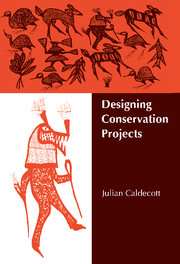Book contents
- Frontmatter
- Contents
- Foreword by Daniel H. Janzen
- Preface
- Acknowledgements
- 1 Introduction
- 2 Baram River, Sarawak
- 3 Cross River, Nigeria
- 4 Siberut and Flores Islands, Indonesia
- 5 Forest fragments in China and the Philippines
- 6 Costa Rican linkage projects
- 7 Irian Jaya, Indonesian New Guinea
- 8 Project themes and practicalities
- 9 Options for conservation
- 10 Options for development
- 11 Options for changing people's minds
- 12 Summary and conclusions
- Glossary
- Bibliography
- Index
Preface
Published online by Cambridge University Press: 04 February 2010
- Frontmatter
- Contents
- Foreword by Daniel H. Janzen
- Preface
- Acknowledgements
- 1 Introduction
- 2 Baram River, Sarawak
- 3 Cross River, Nigeria
- 4 Siberut and Flores Islands, Indonesia
- 5 Forest fragments in China and the Philippines
- 6 Costa Rican linkage projects
- 7 Irian Jaya, Indonesian New Guinea
- 8 Project themes and practicalities
- 9 Options for conservation
- 10 Options for development
- 11 Options for changing people's minds
- 12 Summary and conclusions
- Glossary
- Bibliography
- Index
Summary
Biodiversity can be conserved through an alliance of local people and other groups, but the context varies since some threats can be solved by communities acting alone, while others are too potent for local people to meet without help. Secure land tenure, for example, can give people the authority to resist encroachment, but well-armed poaching gangs can overwhelm such defences, and so too can planning failures which result in ill-placed roads and logging concessions. Local people often have good reason to help conserve the ecosystems on which they depend, but to do so they must have confidence and power enough to protect their own interests.
This autonomy should be supported by proper central planning and by properly enforced laws, including those which provide for consistent, longterm investment in protecting nature reserves with local consent. Such reserves are valuable in all sorts of ways, but protecting them can be expensive. Hence the need for the greatest possible cost-effectiveness in conservation action (the main subject of this book), and for a proper balance between the powers and responsibilities of different levels of government in undertaking it (the subject of other recent studies
I have tried to give this book as many points of contact with real life as possible, using only observations for which I can vouch personally. Before beginning the case studies, I want to tell a story showing that conservation neeed not be as complex as it sometimes seems. It concerns the fishing vilages (or barangays) of Dacu and Oeste, which face each other across a small bay on the island of Libucan in the Samar Sea, in Philippine waters.
- Type
- Chapter
- Information
- Designing Conservation Projects , pp. xvii - xixPublisher: Cambridge University PressPrint publication year: 1996



